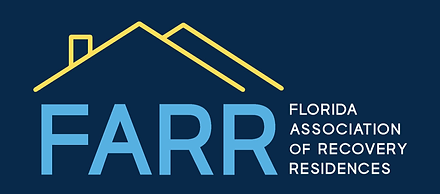
Why Cultural Relevance in Addiction Treatment Matters for the Latin Community
When seeking addiction treatment, many families in the Latin community assume that simply finding a Spanish-speaking program is enough. While language is an important factor, true cultural relevance goes far beyond just speaking Spanish.
It’s about understanding the deep-rooted values, traditions, and family dynamics that shape the way Latinos experience addiction—and recovery.
For many, addiction is not just an individual struggle. It is woven into the fabric of family expectations, unspoken traumas, religious beliefs, and the way we were raised to see mental health. Treatment that does not recognize these cultural factors often falls short, leaving individuals and their families feeling disconnected and misunderstood.
So, why does cultural relevance matter in addiction treatment for the Latin community?
Addiction is a Family Illness—And Family Looks Different in Latino Culture
In many mainstream treatment programs, the focus is on the individual. But in Latin culture, we are raised with the understanding that family is everything. Decisions are rarely made alone, and an individual’s struggles often impact the entire household.
🔹 The challenge? Many Latinos feel an overwhelming sense of responsibility for their family members, sometimes to the point of self-sacrifice. This is known as el complejo de salvador—the need to “rescue” others at all costs.
🔹 How does this impact treatment? A person struggling with addiction may feel intense guilt about seeking help, seeing it as a betrayal or burden to their family. On the other hand, families may unknowingly enable their loved one’s addiction because they believe protecting them—even from consequences—is an act of love.
👉 A culturally relevant treatment program acknowledges these dynamics and includes family education and support as part of the healing process. It doesn’t just focus on the individual but helps the entire family unit learn healthier ways of support and accountability.
The Stigma Around Addiction & Mental Health is Different in Latin Communities
For many Latin families, addiction is not seen as a medical condition—it is often viewed as:
❌ A lack of willpower
❌ A spiritual failure
❌ A family disgrace
This stigma can make it incredibly difficult for people to admit they need help. Many fear being judged, rejected, or seen as weak by their loved ones.
Additionally, mental health issues such as depression, anxiety, and trauma are often dismissed. Instead of acknowledging the need for therapy, families may say:
🗣️ “Eso no es nada, ponte las pilas.” (“It’s nothing, just push through.”)
🗣️ “La familia resuelve sus propios problemas, no necesitamos terapia.” (“Family solves its own problems, we don’t need therapy.”)
🗣️ “Solo necesitas más fe.” (“You just need more faith.”)
👉 A treatment center that truly understands Latin culture breaks down these harmful narratives and replaces them with education, compassion, and tools for long-term recovery.
Religious & Spiritual Beliefs Shape How We Approach Healing
For many Latinos, faith is at the center of their lives. Whether Catholic, Christian, or part of another faith tradition, spirituality often plays a role in how addiction and healing are perceived.
In some cases, this is a powerful tool—prayer and community can provide strength. But in others, religion may be used as a reason to avoid professional help. Families may believe that addiction is a test from God, something to overcome through prayer alone.
👉 A culturally competent treatment program integrates spirituality in a balanced way—honoring religious beliefs while also providing evidence-based medical and psychological care.
Trauma & Immigration Stress Are Often Overlooked in Generic Treatment Centers
Many Latinos carry generational trauma—whether from experiences of migration, discrimination, or economic hardship.
Some individuals may have:
- Fled violence in their home country
- Grown up in a household where survival came before emotional well-being
- Faced acculturation stress—the struggle of adapting to a new culture while holding onto their roots
These experiences can lead to anxiety, depression, and even substance use as a coping mechanism. Unfortunately, mainstream treatment programs rarely address these unique cultural stressors.
👉 A culturally relevant treatment program doesn’t just treat the addiction—it acknowledges and works through the trauma behind it.
The Latin Concept of “Machismo” & “Marianismo” Can Block True Healing
Men in Latin culture are often raised with the idea that they must be strong, independent, and unemotional. This is known as machismo. Because of this, many Latino men avoid seeking help for addiction, seeing it as a sign of weakness.
On the other hand, Latina women are often expected to be self-sacrificing caregivers. This is known as marianismo. They may feel guilty for prioritizing their own healing, believing their role is to “hold the family together” at all costs.
👉 A culturally competent program understands these gender expectations and helps individuals unlearn harmful patterns that block true recovery.
Choosing the Right Treatment: It’s About More Than Just Language
Addiction treatment for Latinos must be about more than just speaking Spanish. It must understand the heart of Latin culture—the values, struggles, and family dynamics that influence recovery.
At our center, we:
✔️ Provide therapy in Spanish, but also address cultural identity and family expectations
✔️ Help families heal together instead of treating addiction as an individual issue
✔️ Educate our community on mental health and addiction stigma
✔️ Honor spirituality while integrating evidence-based medical treatment
✔️ Address immigration trauma, acculturation stress, and generational cycles
If you or a loved one is struggling, you are not alone. Healing happens best when it is rooted in understanding, cultural connection, and community.
📞 Contact us today to learn how we can help.
Related blog articles:
La Adicción en la Sociedad Moderna: Desafíos y Soluciones
Here are some additional resources available:
-
SAMHSA (Substance Abuse and Mental Health Services Administration) – Cultural Competence in Behavioral Health
https://www.samhsa.gov/capt/applying-strategic-prevention/cultural-competence -
National Institute on Drug Abuse (NIDA) – Drug Use Among Hispanics/Latinos
https://nida.nih.gov/publications/research-reports/substance-use-in-women/unique-issues-women-face-hispanic-latina -
Mental Health America – Latino/Hispanic Communities & Mental Health
https://www.mhanational.org/issues/latinohispanic-communities-and-mental-health




